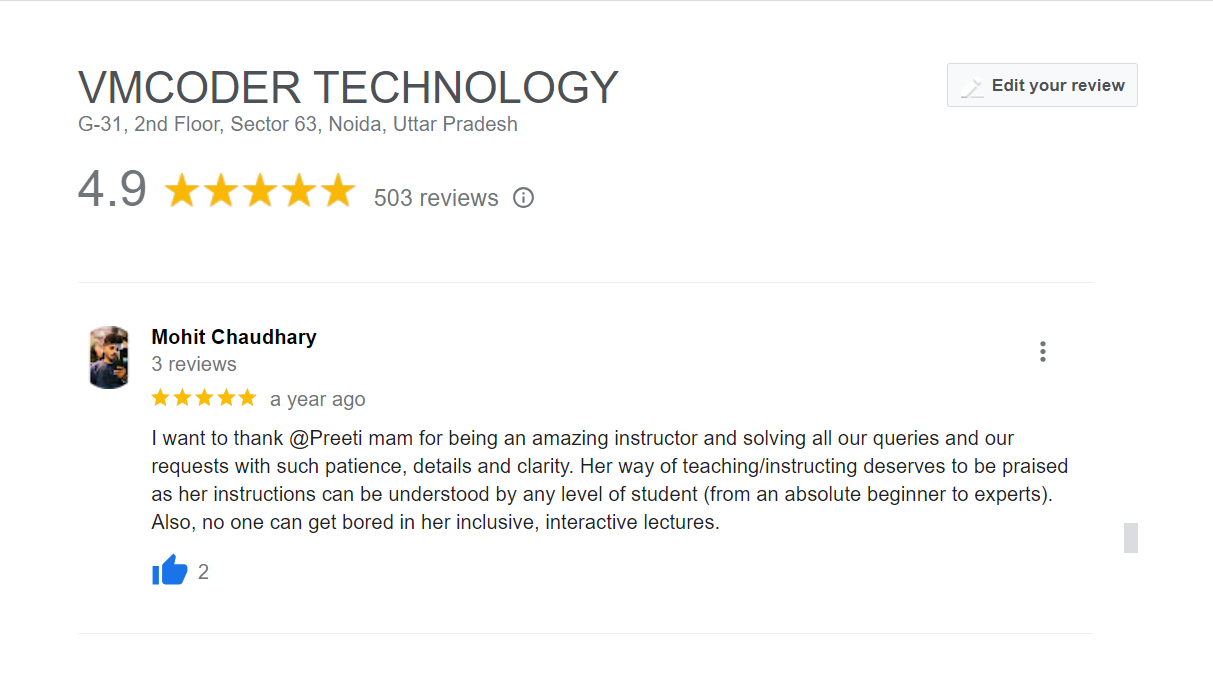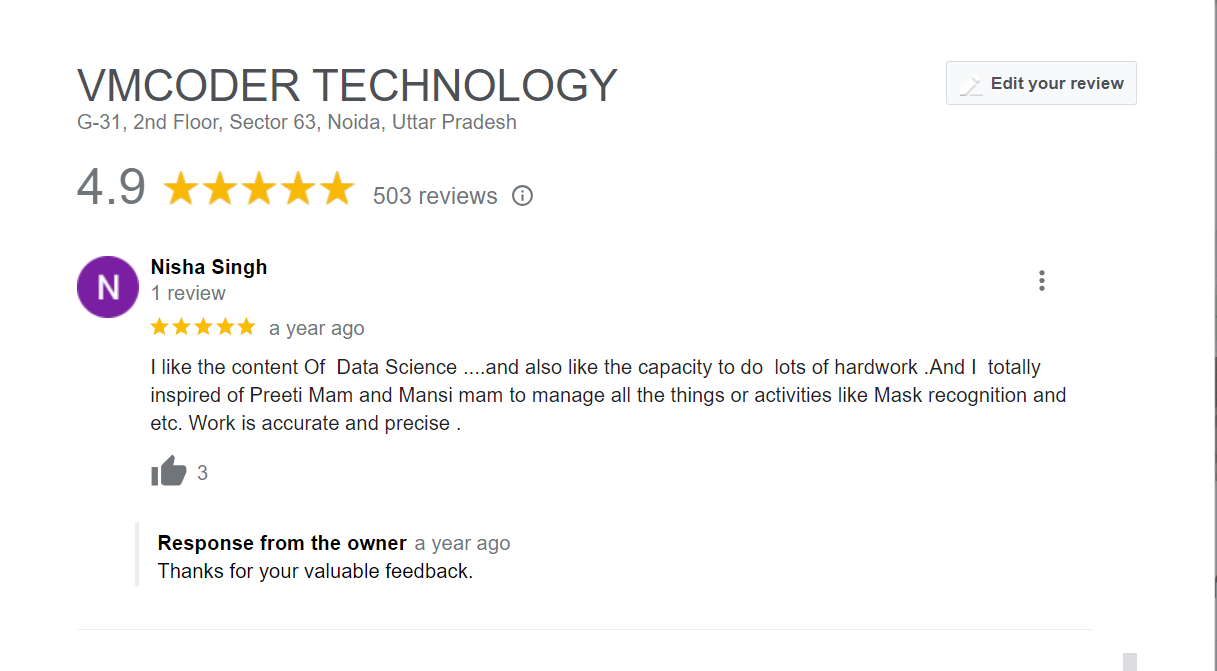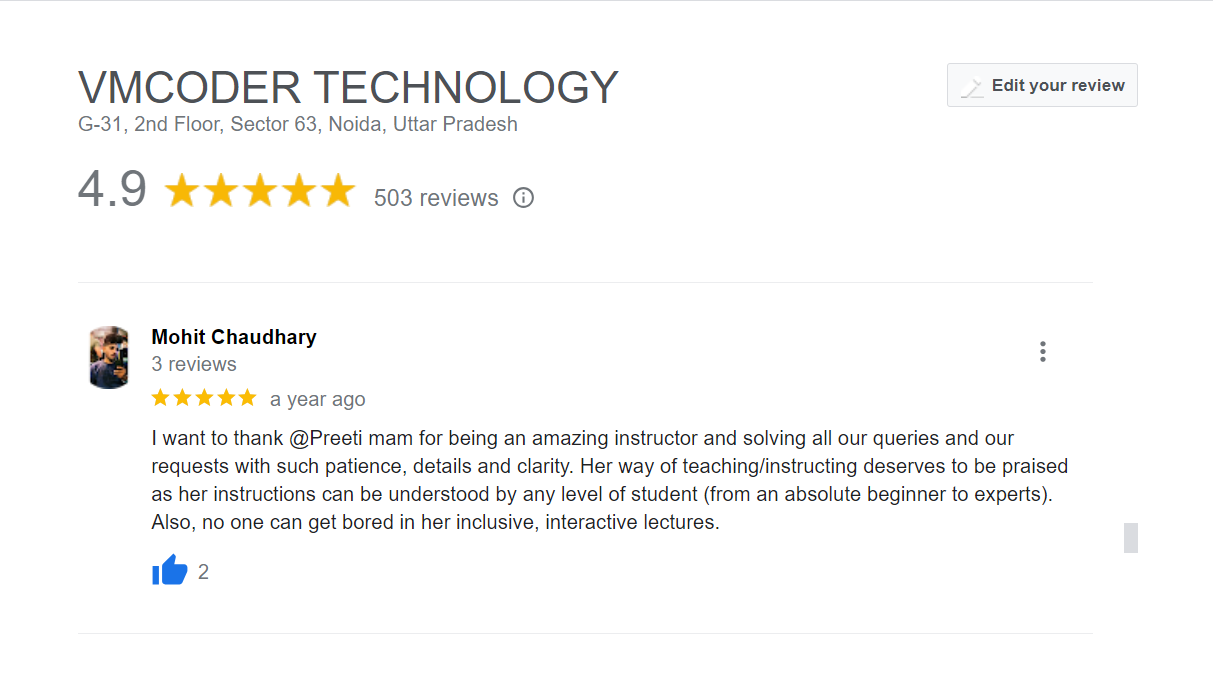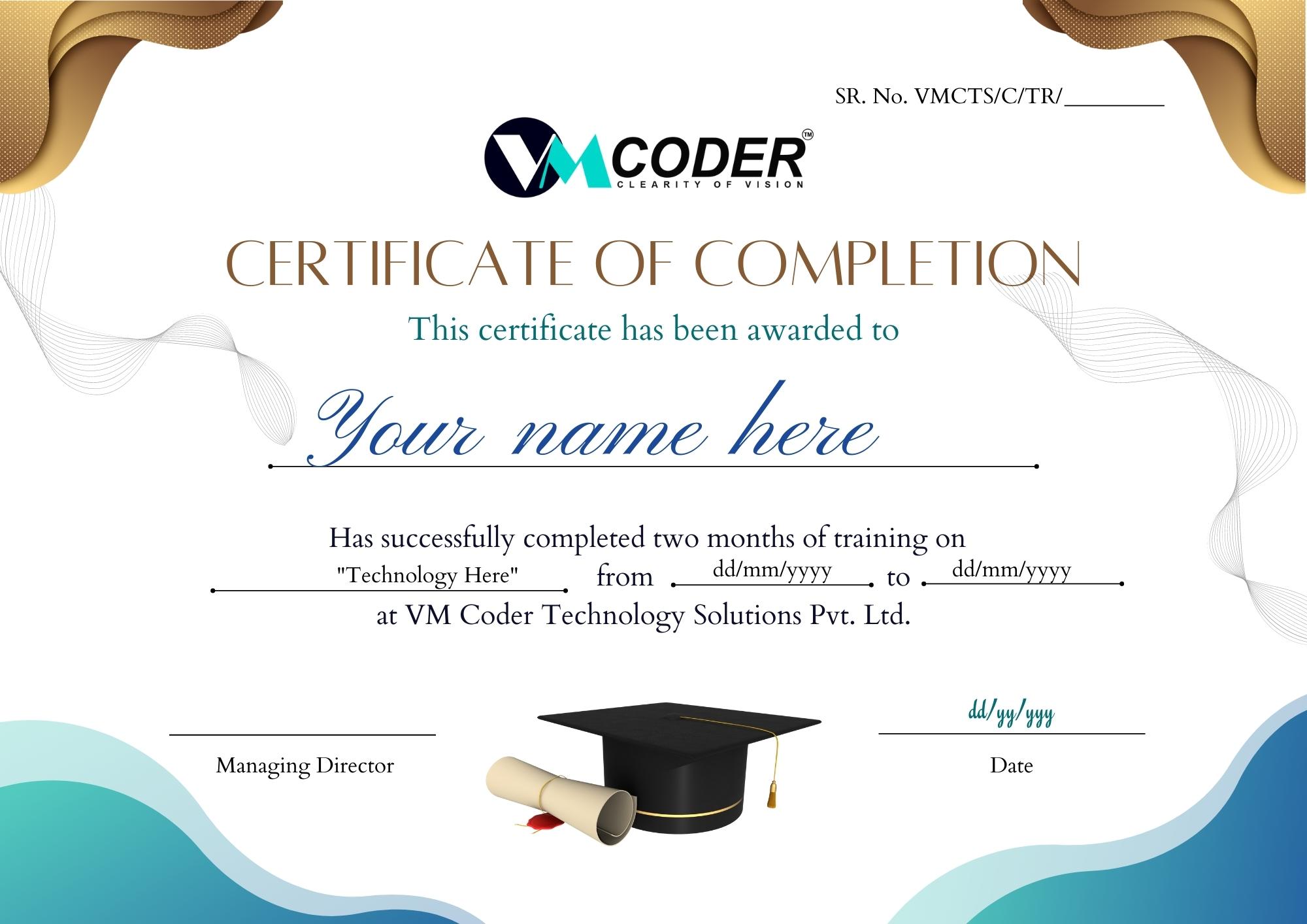Our Courses Overview
VM Coder is an organization that offers Microsoft Power BI certification training to students looking to enhance their IT skills and build a strong career in data analysis and visualization. The Power BI certification training provided by VM Coder focuses on equipping students with the knowledge and practical skills necessary to effectively analyze data, create compelling visualizations, and make data-driven decisions using Microsoft Power BI.
Here's an overview of how VM Coder provides IT-based training in Microsoft Power BI:
1. Comprehensive Curriculum: VM Coder offers a well-structured curriculum that covers various aspects of Microsoft Power BI, including data modeling, data transformation, visualization techniques, dashboards, and report creation. The training program is designed to provide a holistic understanding of Power BI concepts and techniques.
2. Experienced Instructors: VM Coder's training is conducted by experienced instructors who have expertise in Power BI. These instructors have practical industry experience and are skilled at delivering the course content effectively.
3. Hands-on Projects: The training program emphasizes hands-on learning. Students are given the opportunity to work on real-world projects that involve data analysis and visualization using Power BI. This practical approach enables them to apply the knowledge gained during the training and develop valuable skills.
4. Power BI Desktop and Power BI Service: VM Coder ensures that students gain proficiency in both Power BI Desktop and Power BI Service, which are key components of the Power BI ecosystem. Students learn how to create interactive reports and dashboards using Power BI Desktop and how to publish and share those reports on the Power BI Service.
5. Data Integration and Transformation: VM Coder's training covers the process of connecting to various data sources, performing data transformation, and integrating multiple datasets in Power BI. Students learn how to clean, shape, and prepare data for analysis and visualization.
6. Advanced Analytics and DAX: The training program delves into advanced topics such as implementing calculations, measures, and calculated columns using Data Analysis Expressions (DAX). Students learn how to leverage DAX functions to perform complex calculations and create custom measures.
7. Certification: Upon successful completion of the Power BI certification training, VM Coder awards students with a certification that validates their skills and knowledge in Power BI. This certification can enhance their employability and serve as a valuable credential in the job market.
8. Career Assistance: VM Coder offers career assistance services to help students prepare for job interviews, refine their resumes, and connect with potential employers in the field of data analysis and visualization.
In summary, VM Coder provides Microsoft Power BI certification training that offers a comprehensive curriculum, hands-on projects, experienced instructors, proficiency in both Power BI Desktop and Power BI Service, advanced analytics training, certification, and career assistance. By enrolling in this training program, students can enhance their IT skills, gain practical experience in data analysis and visualization, and build a strong foundation for a successful career in the field of Power BI
Apply For Training
CURRICULUM & PROJECTS
- Introduction to Business Intelligence and Power BI
- Understanding business intelligence concepts
- Overview of Power BI and its features
- Exploring Power BI components and architecture
- Getting Started with Power BI
- Installing and setting up Power BI
- Navigating the Power BI interface
- Importing data into Power BI
- Data Preparation and Transformation
- Data sources and connections
- Loading and transforming data using Power Query Editor
- Cleaning and shaping data for analysis
- Data Modeling with Power BI
- Introduction to data modeling
- Creating relationships between tables
- Defining calculated columns and measures
- Visualizations and Reports
- Creating interactive visualizations using Power BI Desktop
- Formatting and customizing visuals
- Building dashboards and reports
- Advanced Data Analysis
- Applying filters, slicers, and hierarchies
- Implementing advanced calculations and DAX functions
- Utilizing time intelligence functions
- Sharing and Collaboration
- Publishing and sharing reports on Power BI Service
- Collaborating with colleagues on shared content
- Configuring data access and security
- Data Insights and Exploration
- Exploring data using natural language queries
- Creating and sharing data insights
- Leveraging AI-powered features in Power BI
- Power BI Mobile App
- Overview of Power BI Mobile App
- Accessing and interacting with reports on mobile devices
- Sharing and collaborating on mobile
- Power BI Integration
- Integrating Power BI with other Microsoft tools (e.g., Excel, SharePoint)
- Embedding Power BI reports in external applications
- Automating data refresh and report generation
- Skill Development: Training programs provided by companies are designed to enhance specific skills required for the job. These programs can help individuals acquire new knowledge, improve existing skills, and stay updated with the latest industry trends.
- Career Advancement: Company-sponsored training often focuses on developing employees' competencies and preparing them for career growth opportunities. By participating in training programs, individuals can enhance their qualifications, increase their value to the company, and potentially open up new avenues for promotion or better job prospects.
- Increased Productivity: Well-structured training programs can improve employees' efficiency and effectiveness in their roles. By equipping individuals with the necessary knowledge and skills, companies can enhance overall productivity, leading to better performance and outcomes for both employees and the organization.
- Standardization and Quality Assurance: Training programs help establish standard procedures and best practices within an organization. By ensuring that employees are trained consistently, companies can maintain quality standards across different teams and departments, leading to better outcomes, customer satisfaction, and overall operational excellence.
- Personal Growth and Confidence: Training programs not only focus on professional skills but also contribute to personal growth. Employees gain confidence, expand their knowledge base, and develop a broader perspective through exposure to new ideas and experiences. This personal growth can have positive effects on both professional and personal aspects of their lives.
Training helps in to grow your career.
Google Reviews Of
VM Coder Technology









Effective Growth Strategies, Converting Websites & Online Marketing.
Obtain Your Accreditation
Showcase Your Accomplishments

Placement Support

Career Advisor

Mock Interviews

Coding Quiz








 VM Coder provides best training and they also prepare you for interview and now I am working as a Python developer in a IT company with a good salary package.
VM Coder provides best training and they also prepare you for interview and now I am working as a Python developer in a IT company with a good salary package.





